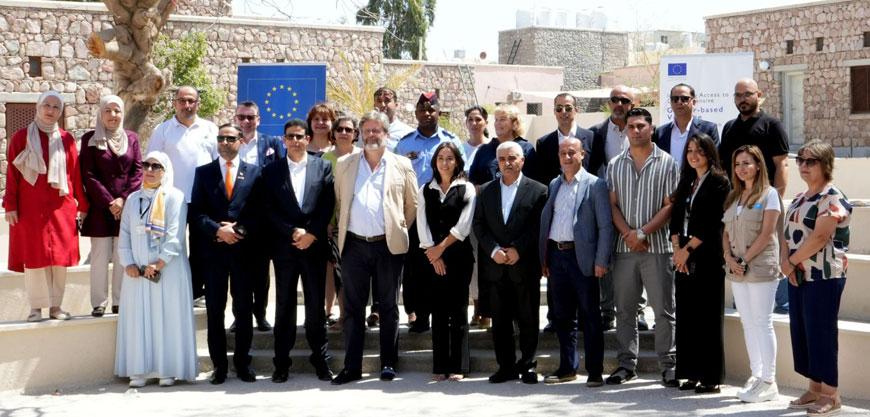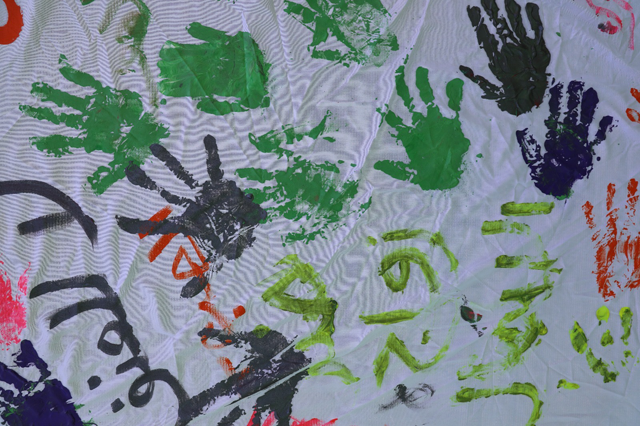You are here
SOS Children's Villages opens safe homes in Aqaba Children's Village
By JT - Jul 28,2024 - Last updated at Jul 28,2024

SOS Children's Villages Jordan inaugurates the Safe Homes in Aqaba Children’s Village (Photo courtesy of Children’s Villages Jordan)
AMMAN — SOS Children's Villages Jordan inaugurated the Safe Homes in Aqaba Children’s Village in the presence of Miguel de Lucas, the Ambassador of Spain in Jordan, Khaled Hajjaj, Governor of Aqaba, according to a statement for The Jordan Times.
This groundbreaking initiative builds on the existing Safe Homes in SOS Children's Villages Amman and Irbid, which were inaugurated in early 2023, and aims to provide safe shelter for women survivors of gender-based violence (GBV) and their children.
Rana Zoubi, National Director of SOS Children's Villages Jordan, opened the event with a welcoming speech, highlighting the significance of this initiative in providing a safe and supportive environment for women and children affected by GBV. She emphasised, "We place the best interest of the child at the heart of everything we do, The Safe Homes project is a testament to our commitment to creating a nurturing environment that fosters recovery and reintegration within the community. To date, there are five homes in Amman Children’s Village, one in Irbid’s Village, and two new homes are now opening in Aqaba Children’s Village.”
Following that, Himyar Abdulmoghni from UNFPA Jordan gave a speech emphasising the importance of comprehensive GBV services. He stated, "The importance of safe homes is undeniable, as seen through the inspiring stories of survivors who have benefited from their services. These stories highlight the essential role of these homes in not only providing protection but also serving as a haven where individuals can regain their strength and restore balance to their lives. They reinforce the concept that everyone has the right to a dignified and safe life, free from violence and fear," the statement said.
Mohammad Tawarah, Director of the Directorate of Social Development in Aqaba, spoke next, highlighting the ministry's support for these essential services. He stated: "The Ministry of Social Development has had a partnership with SOS Children's Villages since its inception to provide shelter and care services for children. Today, we gather to celebrate the inauguration of the Safe Homes project, aimed at providing support to women survivors of violence and their children. This is another notable achievement that adds to the care services provided by SOS Children's Villages, showcasing a clear distinction and well-studied vision in delivering the best services.
Miguel de Lucas, the Spanish Ambassador to Jordan, thanked in his speech the European Union for its confidence in Spain with this project and for its important contribution to the fight against gender-based-violence. He highlighted that gender inequality is in the root cause of the violence and therefore the promotion of Gender Equality is a priority for the Spanish Government.
The Safe Homes project is launched under the "Improving Access to Comprehensive GBV Services in Jordan" project, funded by the European Union and implemented by the Spanish Agency for International Development Cooperation (AECID) Jordan, in collaboration with the United Nations Population Fund (UNFPA) Jordan.
This project offers a "one-stop-shop" safe shelter service for women survivors of GBV and their children, adhering to international guidelines for deinstitutionalisation. It promotes a community-based integrated model that fosters a nurturing and inclusive environment focused on recovery and reintegration within the community. The project provides a comprehensive package of services including education, health, psychological and legal support, and economic empowerment, enabling mothers and children to achieve their goals and build self-esteem.
The project’s services are free of charge and available to all women and their children regardless of nationality or religion. Cases are referred to SOS Children's Villages by the Family Protection Department, Ministry of Social Development or through project partners. The shelter period extends for 90 days. After their leave from the shelter, women and their children receive after care and are followed up on for a period of time to minimise the risk of returning into the system, according to the statement.
Related Articles
AMMAN — SOS Children's Villages Jordan celebrated 40 years of dedicated service to children and families with a heartfelt ceremony at the Sh
AMMAN — Experts and activists on Monday met to discuss ways to provide better and comprehensive safety and security services for gender-base
AMMAN — The United Nations Population Fund (UNFPA) in Jordan has received support from the French Ministry for Europe

















